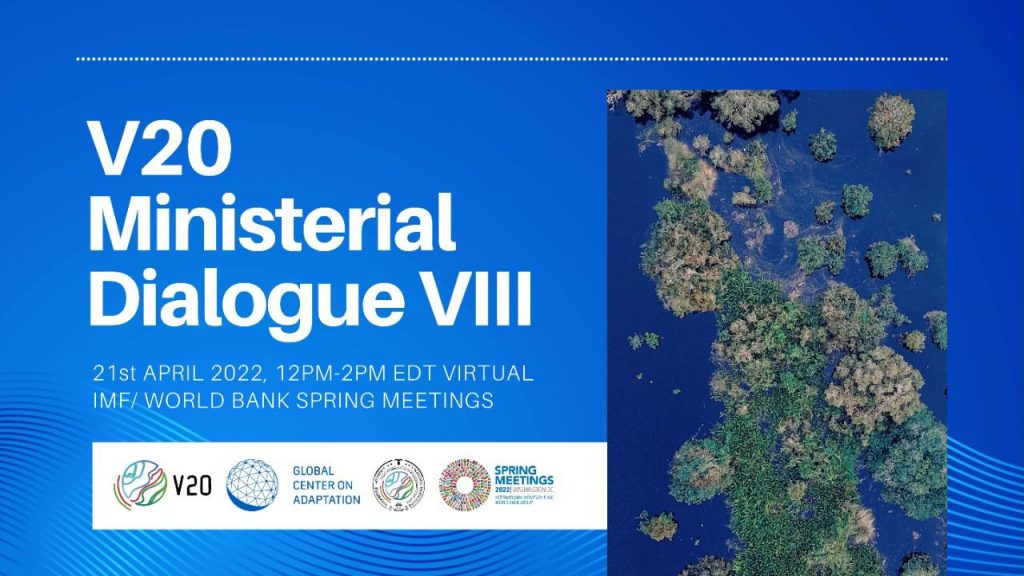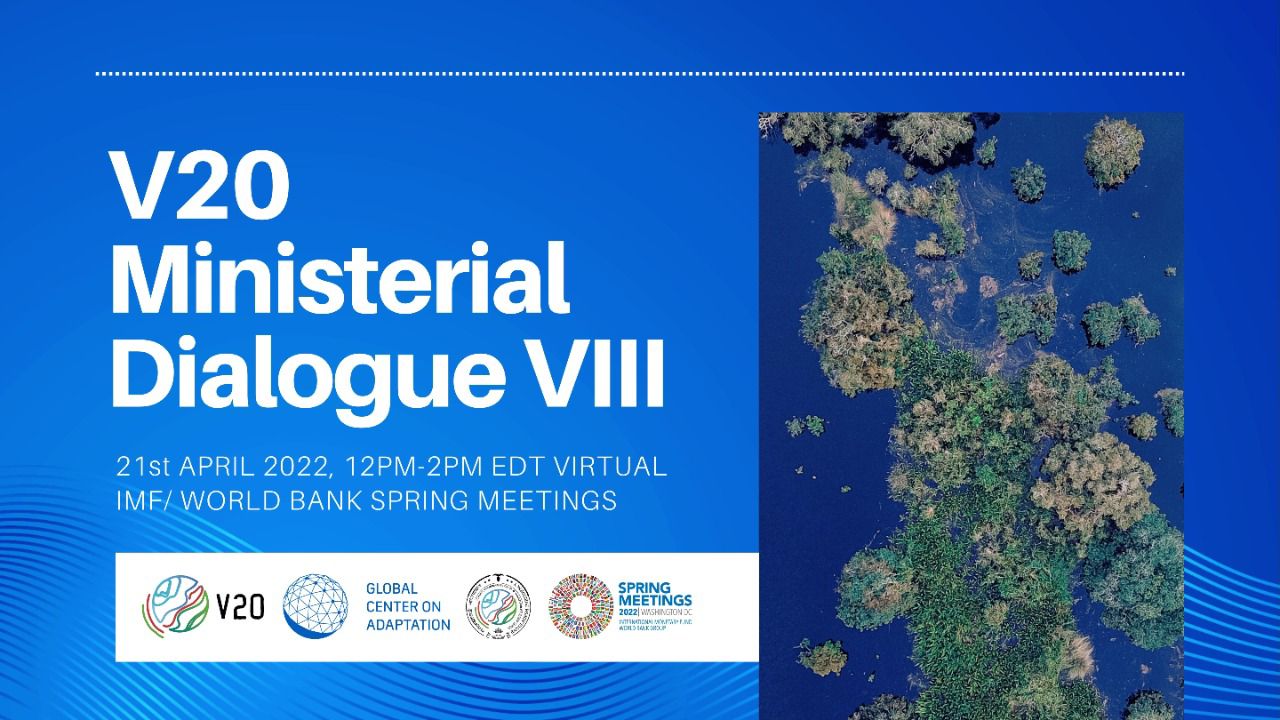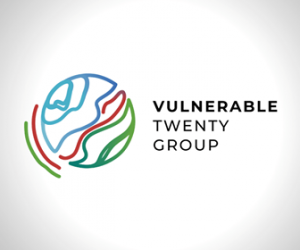Statement delivered by Ms. Jennifer Morgan, State Secretary and Special Envoy for international climate action to the German Federal Foreign Office

V20 MINISTERIAL DIALOGUE VIII- 21 April, 2022
Statements
10:00 pm Dhaka time/12:00 pm Washington DC time
Statement delivered by Ms. Jennifer Morgan, State Secretary and Special Envoy for international climate action to the German Federal Foreign Office
Ms. Jennifer Morgan
State Secretary and Special Envoy for international climate action to the German Federal Foreign Office
Excellencies,
Distinguished V20 Members,
It is with great pleasure that I welcome you today.
I’m Jennifer Morgan, State Secretary and Special Envoy for International Climate Action to the German Federal Foreign Office, and it’s a great honor to speak at this important event of the Ministers of Finance of the Climate Vulnerable Forum. The destructive impacts of the climate crisis are happening and time is running out and you know this better than anyone else in the world.
My first foreign visit since my appointment was to Bangladesh because it was important for me to meet with the Government and people on the frontline of the climate crisis in such a vulnerable country. And I want to reaffirm Germany’s commitment to strengthening the implementation of the Paris Agreement and working to raise ambition to keep 1.5 limit within reach.
This is the critical decade, and we must close the gap in ambition and implementation. We stand with our commitment to increase climate finance, to support adaptation and resilience, in particular to those most vulnerable to the impacts of climate change. And we want to move forward on these issues with our G7 Presidency.
The G7 has to lead in implementing the Glasgow Climate Pact, and this includes a strong G7 response to revisit and strengthen the 2030 targets in their NDC’s and to submit net zero long term strategies by COP 27. The G7 also needs to lead in accelerating the energy transition, phasing out coal and eliminating fossil fuel subsidies by 2025, building on the COP declaration to end international public support for the fossil fuel energy sector in 2022. We’re trying to get Japan on board for this initiative.
Shifting investments and financial flows to align them with the Paris Agreement goals and a sustainable development pathway means integrating climate change consistently into economic and financial decision making processes. This is a challenge we all face and it’s highly relevant for collective and individual action and support for the most vulnerable countries.
On the issue of climate finance and transparency, it is critical that we, as developed countries collectively remain fully committed to delivering on the goal to mobilize jointly a 100 billion dollar a year. We affirm the commitment to collectively at least double adaptation finance from 2019 levels to 2025, in the context of achieving that balance between mitigation and adaptation finance. And we need to do all we can through our individual roles, in particular as G7 countries, to align portfolios of MDBs and financial institutions with the Paris Agreement goals. We want to make sure there is clarity on when and how we will meet these goals. With this much transparency as possible, we know that we have to do further work on this. We want to work through our G7 Presidency to show leadership and solidarity with those most vulnerable to climate change.
And we need to work jointly on practical approaches to increase adaptation funding and improve access to adaptation finance. We also recognize the need to use different types of climate finance to respond to diverse needs and priorities, and to mobilize private finance, recognizing the specific needs and support the most vulnerable countries and communities need. And we are committed to working closely together to find practical ways to address barriers in addressing climate finance.
On the issue of loss and damage, our aim is to foster more systematic, coherent, and sustained financial protection against climate risk and to contribute to minimizing, averting, and addressing losses and damages from climate change. We’re working towards a key delivery in the development track of the G7 Presidency. Our proposal to the G7 and partners is to work jointly towards establishing an improved climate and disaster risk finance and insurance architecture. This Global Shield against climate risks. Our ambition is that the Global Shield will respond to the urgent needs of our V20 partners. We’ve heard from you that the Global Shield must, above all, focus on mobilizing and building access to new financial resources and support governments in preparing the required institutions. Also, the global shield should propel a coordinated approach to delivering international public and private sector funds for prearranged finance with speed, scale, and quality. And we’ll ensure that your positions are included in the further development of the Global Shield and we are always open for dialogue and further input. Germany is proud to have built a strong relationship with the V20. In the framework of the InsuResilience Global partnership (IGP), the V20 and Germany work closely together to substantially scale up climate and disaster risk finance and insurance solutions to protect, annually, 500 million people in climate vulnerable countries by 2025.
And in a strong partnership with the V20, Germany will continue to work on enhancing the global climate and disaster risk financing architecture, also beyond the G7 Summit in June. Since we set InsuResilience in 2017, our joint efforts under the partnership have contributed significantly to strengthening the financial resilience of vulnerable countries and communities against climate and disaster risk. And to date, development partners have supported InsuResilience with more than 1.2 billion Euros in total. Today, InsuResilience is active for 24 programs in over 100 countries. Efforts under this initiative are strongly interlinked with our agenda on anticipatory action. Together with risk financing, the instruments and approaches of anticipatory humanitarian aid need to be scaled up. And this year, we aim to double our contribution to anticipatory action moving forward. We believe this is the year that G7 can jointly make a significant contribution to protect the most vulnerable countries from disaster risk. And together we can turn this from a vision into reality. Thank you.
[END]




